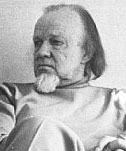
 | |
| home | search | email list | feedback | submit a quote |
| Pollution and the Death of Man: A Christian View of Ecology |  | |
| Summary If God treats the tree like a tree, the machine like a machine, the man like a man, shouldn't I, as a fellow-creature, do the same -- treating each thing in integrity in its own order? And for the highest reason: because I love God -- I love the One who has made it! Loving the Lover who has made it, I have respect for the thing He has made. Pollution and the Death of Man (paper) Pollution and the Death of Man (paper - another edition) Pollution and the Death of Man (cassette - includes A Christian Manifesto) The Complete Works of Francis Schaeffer (paper) The Complete Works of Francis Schaeffer (Windows CDROM) Quotes From The Book This is something we must always be careful of. Words have two meanings, the definition and the connotation. The connotation goes on no matter what you do with the definition. Modern man destroys the definition of religious words, but nevertheless likes to cash in on their connotation/ motivation force. (Francis A. Schaeffer, Pollution and the Death of Man, Ch. 2) Pantheism eventually gives no meaning to any particulars. In true pantheism unity has meaning, but the particulars have no meaning, including the particular of man. Also, if the particulars have no meaning, then nature has no meaning, including the particular of man. A meaning to particulars does not exist philosophically in any pantheistic system, whether it is the pantheism of the East or the "paneverything-ism" in the West, beginning everything only with the energy particles. In both cases, eventually the particulars have no meaning. Pantheism gives you an answer for unity, but it gives no meaning to the diversity. Pantheism is not an answer. (Francis A. Schaeffer, Pollution and the Death of Man, Ch. 2) ...the hippies of the 1960s did understand something. They were right in fighting the plastic culture, and the church should have been fighting it too... More than this, they were right in the fact that the plastic culture - modern man, the mechanistic worldview in university textbooks and in practice, the total threat of the machine, the establishment technology, the bourgeois upper middle class - is poor in its sensitivity to nature... As a utopian group, the counterculture understands something very real, both as to the culture as a culture, but also as to the poverty of modern man's concept of nature and the way the machine is eating up nature on every side. (Francis A. Schaeffer, Pollution and the Death of Man, Ch. 2)
© 1999 Rational Pi, all rights reserved | ||